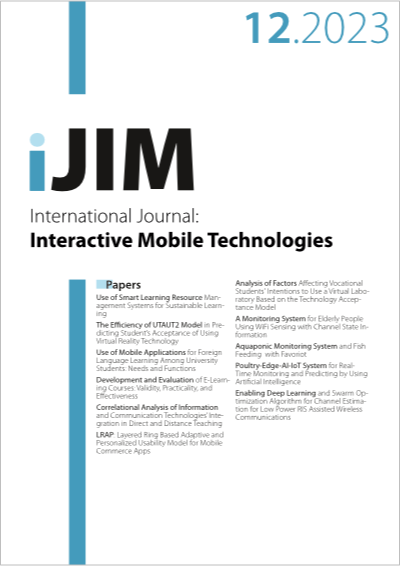LRAP: Layered Ring Based Adaptive and Personalized Usability Model for Mobile Commerce Apps
DOI:
https://doi.org/10.3991/ijim.v17i12.37995Keywords:
Usability model, m-commerce, mobile apps, online shoppingAbstract
Usability is one of the most important characteristics of software applications, especially when it comes to mobile shopping applications. There is a great deal of shift from traditional shopping to online shopping because it benefits both parties i.e., customers as well as businessmen. In such a scenario, the usability factor can play a very vital role in the business industry. If a client stops using a mobile shopping app because it is not user-friendly, it can badly damage the annual revenues especially when hundreds of alternatives are available and there is tough competition. Therefore, to keep existing customers intact and to attract new customers, it is very important to provide a user-friendly mobile app to customers. In this paper, we consider a large variety of online customers with diverse requirements. background and constraints and evaluate the usability of existing mobile e-commerce apps to identify the actual problems people are facing with existing applications and do a systematic review of existing shopping apps. Then, we propose a personalized and adaptive usability model for mobile commerce apps considering the neglected user type i.e., illiterates and people with tactile disabilities. The proposed model LRAP is a layered approach from generalization to specification and it can be considered an extension of the famous PACMAD usability model. Besides this, we also suggest a combining score tool which will be helpful in measuring the usability of any app.
Downloads
Published
How to Cite
Issue
Section
License
Copyright (c) 2023 Qurat Ul Ain, Malik Muhammad Saad Missen, Surya Prasath

This work is licensed under a Creative Commons Attribution 4.0 International License.


